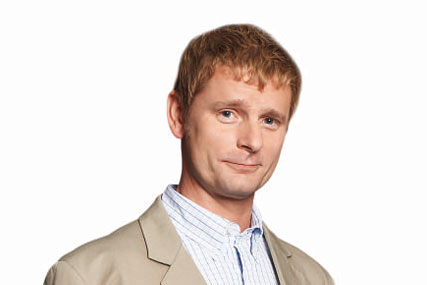I was at the ISBA conference last week, where I was asked to chair a panel on digital media. Just before I went on stage, the previous speaker, Nigel Walley from Decipher, was talking about the volume of new initiatives, launches and developments expected to come to market in video on demand during 2010.
Nigel is an expert in the area, and if you need to know how technology will shape TV advertising over the next one to five years, he's your man. His West London-based facility has gathered together every conceivable set-top box, TV and VOD supplier under one roof, and his team knows each one inside out.
Moreover, Nigel knows better than anyone that most of the tech offerings he gathers together will never succeed, but his job is to spot the winners and divine the future from the entrails that string the different boxes together.
He's seen more bandwagons jumped on than most us have had microwave meals for one, and he drew a conclusion that's not unusual in marketing.
'If you don't know the value of your digital agency, if all you know of them is the cost,' he said, 'fire them.' My first instinct was to agree with him.
Advertising is an investment. Whether you do it in digital or on pulped-up dead trees, having some notion of the value you're getting in return is usually regarded as a good thing.
This is where my opinion starts to diverge a little from Nigel's because it doesn't seem that the 'digital' element is relevant here - surely you should apply the same thinking, whatever area of marketing you are commissioning.
There is a sense that some marketers apply a higher bar to digital than to the traditional parts of their activity. Advertisers often avoid websites that have some unsuitable content, even though most of the site is acceptable.
At the same time they will happily continue to advertise on TV channels that carry individual programmes their agencies are instructed to avoid.
They fret about share of voice on TV, while underfunding paid search advertising so that when consumers search for their brand, they're not always visible, giving competitors a handhold on people who had initially indicated a preference for another brand.
Some have lambasted digital for its lack of accountability, but this is surely a sign, if ever there was one, that their agency needs firing. No medium is perfectly accountable, but if you're singling out the digital channel as the least accountable, you have a problem.
However, there is another consideration. Often misquoted (including by me, probably), Albert Einstein said: 'Not everything that can be counted counts and not everything that counts can be counted.' By this he meant that we draw unwarranted comfort from the quantifiable elements of life, believing them to be the most justifiable, while undervaluing the unmeasurable. He was being a little more profound, referring to love and hope; but the thinking holds good here, too.
Innovation is the lifeblood of competitive advantage. It's how we take that leap ahead of the opposition. However, when we select from the array of options that present themselves to us, we don't always have the advantage of being able to measure in advance which one will offer that leap. It is notoriously difficult to measure opportunity cost in new areas, and experimentation is vital if we're to know which options in a changing world present the best business prospects.
Nigel is right to call for high standards. However, if it's not easy to measure the true relative impact of a course of action, that's no more true of digital than any other medium. Holding it to a different standard just supports a culture of complacency and assumption in relation to your other activity.
Andrew Walmsley is co-founder of i-level
30 SECONDS ON... ALBERT EINSTEIN
- Albert Einstein was born into a Jewish family in 1879 in the Kingdom of Wurttemburg, part of the German Empire. His family later moved to Munich and then Italy.
- The young Einstein pursued his higher studies in Switzerland and became a Swiss citizen after renouncing his German citizenship to avoid having to do military service.
- After graduating he worked for the Swiss Patent Office. During this time he managed to complete his PhD in 1905 and published four scientific papers that formed the basis for his reputation, including one on relativity. In 1914 he was appointed professor at the University of Berlin and in 1921 he received the Nobel prize for physics.
- Einstein moved to the US in 1933, following the Nazis' rise to power in Germany. He took up a post at Princeton, where he remained for the rest of his life. He became a US citizen in 1940.
- After Einstein died in 1955, the pathologist removed and preserved his brain, hoping it could be used to discover the source of his genius.


